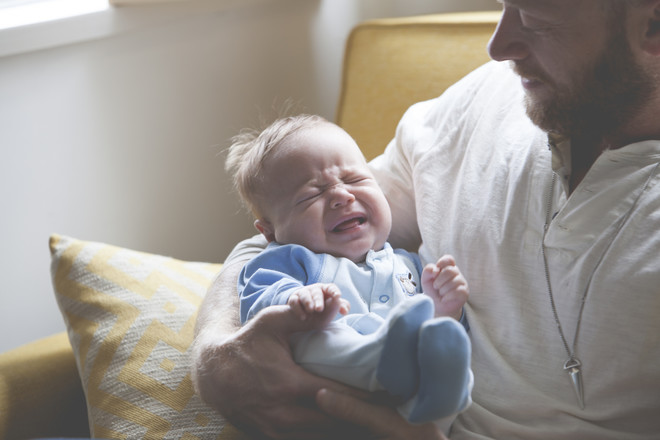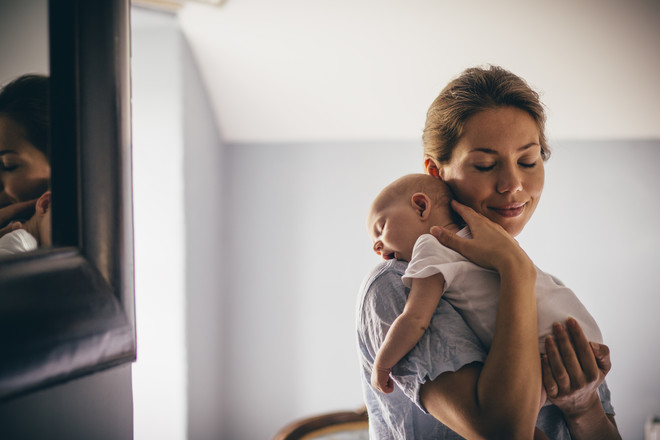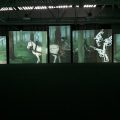 What if the baby hiccups? First of all, try to find out what caused the hiccough. Photo: Getty Hiccup is a convulsive contraction of the muscles of the diaphragm located between the lungs and the stomach. There is a rapid involuntary breath with a narrowed glottis - this is what causes the characteristic sound.
What if the baby hiccups? First of all, try to find out what caused the hiccough. Photo: Getty Hiccup is a convulsive contraction of the muscles of the diaphragm located between the lungs and the stomach. There is a rapid involuntary breath with a narrowed glottis - this is what causes the characteristic sound.
Why does the baby hiccup?
The main causes of hiccups in newborns are:
- Overeating. The stomach, stretched by food and air that got into it during feeding, presses on the wall of the diaphragm, causing it to spasm.
- Excessive gas formation. The bloated intestinal walls press on the stomach, which in turn presses on the diaphragm.
- Hypothermia.
- Fright or strong excitement. The nervous system of a baby in the first months of life is still immature, so strong external stimuli can cause a spasm of the diaphragm.
Much less common, obtrusive hiccups aresymptom of a serious illness, for example, pneumonia, gastroesophageal disease or congenital encephalopathy. If the baby often hiccups and bouts of hiccoughs last up to several hours, be sure to ask your pediatrician for help. If the baby is hiccup, check to see if it's cold and if his stomach is full of air or food. Photo: Getty
If the baby is hiccup, check to see if it's cold and if his stomach is full of air or food. Photo: Getty
The baby hiccups: how to help him?
If hiccups occur after feeding, it is most likely caused by an overfull stomach.
If hiccups are a result of hypothermia,warm the baby - change clothes, wrap him in a blanket or just hold him close. If your baby hiccups from fear, try to eliminate the factors that cause negative emotions in the child. Bright flashes of light, loud voices and sounds, a large number of strangers - all this frightens the baby, and your task is to create a calm, comfortable atmosphere around him. Take your child in your arms, calm him down or distract him with a favorite toy and soon the hiccups will stop. Do not worry: hiccups are a natural phenomenon that will cause less and less discomfort to your baby as he gets older. It is also useful to know:









